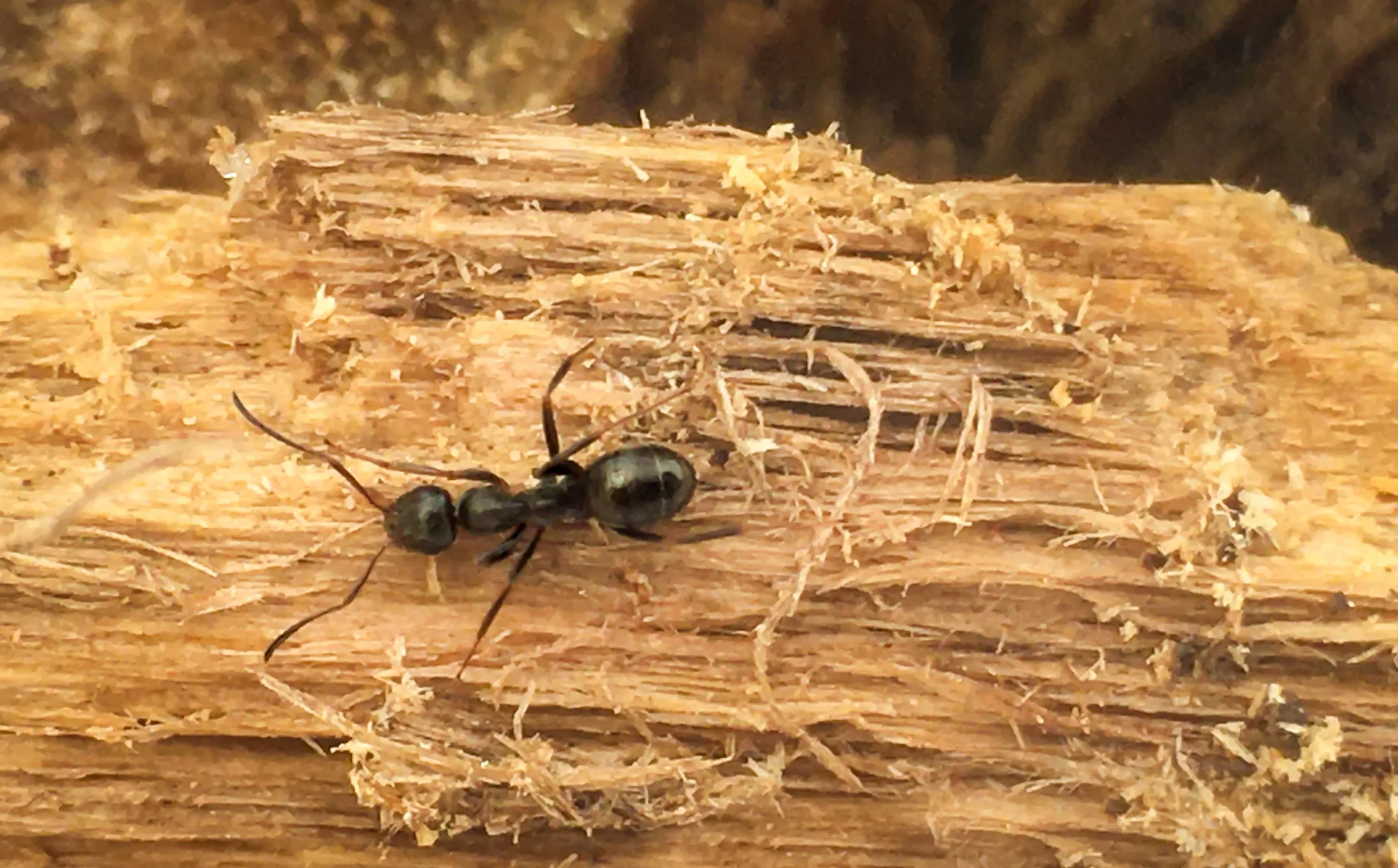One man poured metal into an ant’s nest and had amazing results. What could that have done? Did it take the internet by storm? You’ve got to keep reading to learn what he dug up after his experiment. It’s sure to baffle you and make you want to try it all yourself.
New Type of Art
One artist decided to pour molten metal into an unsuspecting ant hill, and no one could have ever guessed the outcome. To anyone passing by, it appeared like he was destroying the colony, but he finally dug up a stunning piece of artwork. It was simply magical!
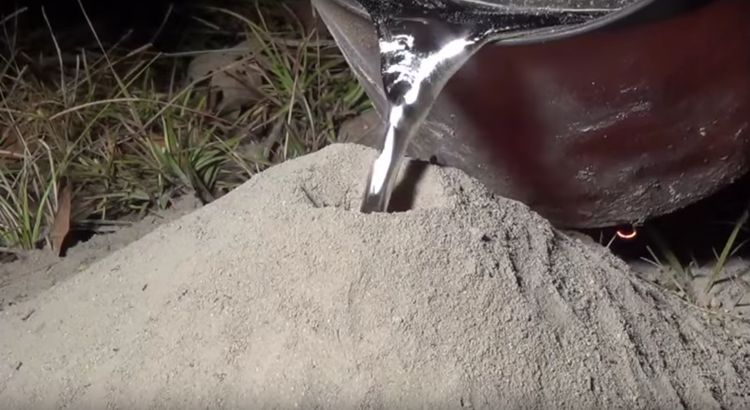
New Type Of Art
Strange YouTube Video
The process for pouring melted metal into ant colonies gained exposure initially from one YouTube video back in 2003. It went viral quickly, and the footage showed close-ups of the enormous ant hill. Things turned strange quickly, though!
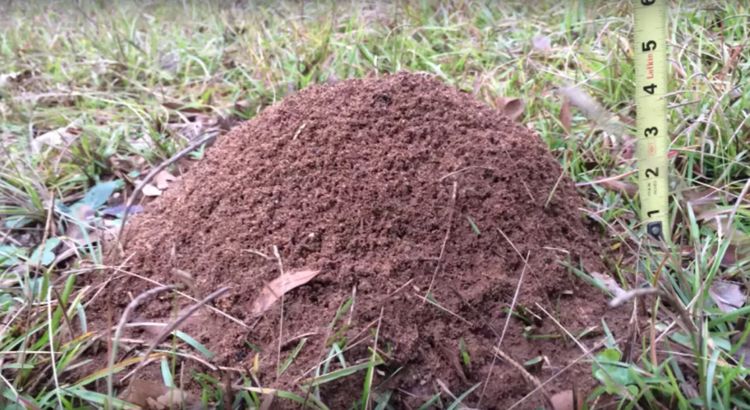
Strange YouTube Video
Molten Aluminum
After he sized up the nest, this unnamed gentleman started pouring molten aluminum into the colony. The liquid penetrated the nest, causing steam to come through the sand while sparks flew everywhere.
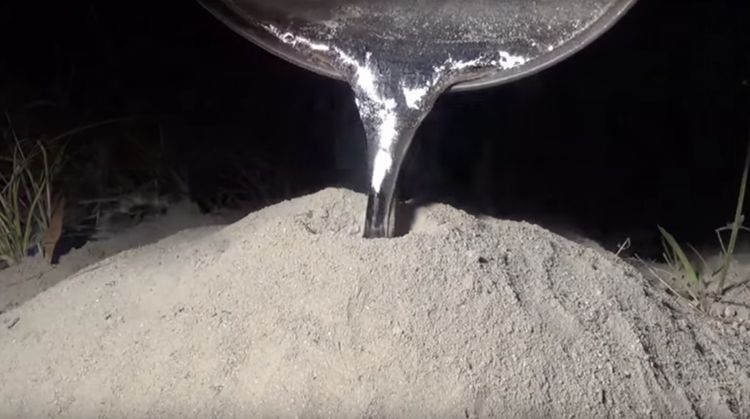
Molten Aluminum
The Steaming Mystery
The molten liquid worked its way into the ant hill quickly, and the mound started coming to life and moving around. In fact, you could hear gargles and hisses as the thick and hot liquid metal settled into the resting place laid out for it.
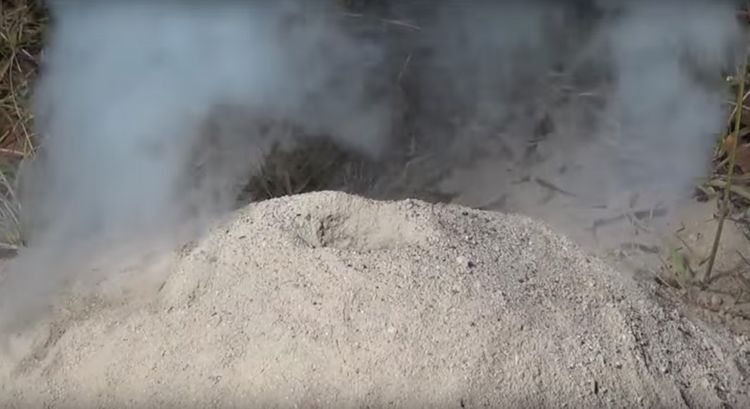
The Steaming Mystery
The Worry
Overall, the steam continued rising out of this ant hill, but things settled quickly. Still, the mound heaved a single final time before it stopped altogether. What could have happened, and why was it so important?!

The Worry
Digging a Treasure
Once the ant colony cooled, the man scooped away the top dirt layers. Then, he dug around the structure so that the nest collapsed completely. When it was freed, he pulled the metal-filled nest away, but that was only the beginning here!
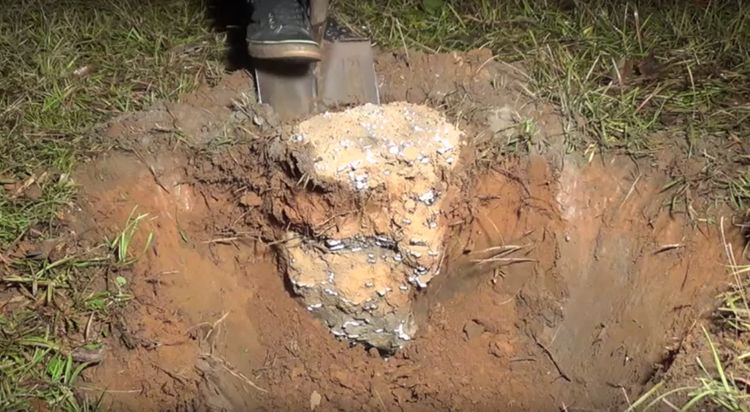
Digging A Treasure
Cleaning off the Dirt
The next step he took was washing off the dirt with a hose. It required a powerful water jet, and the man ensured that no cranny was left untouched here. What was left behind was truly amazing!
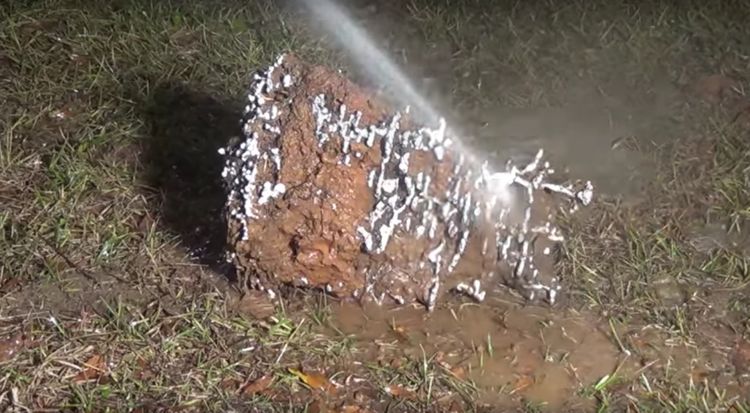
Cleaning Off The Dirt
Reveal Some Stunning Art
Can you believe the picture? The man who uploaded this video called it “ant hill art,” and he liked to go around and cast them in aluminum. The process creates stunning pieces, showing exactly how intricate these ant colonies are.
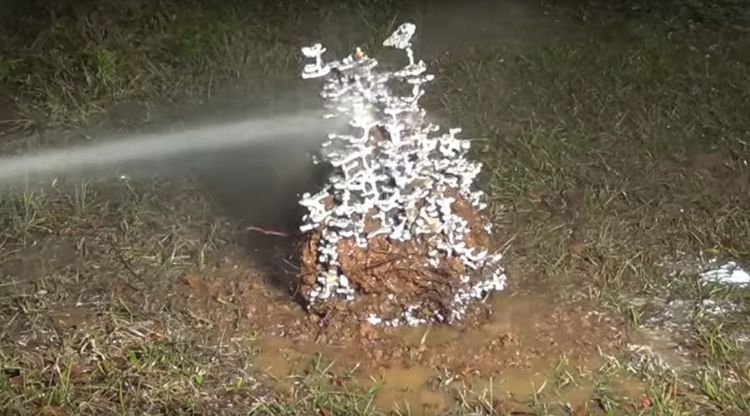
Reveal Some Stunning Art
Ants Galore
Experts say that ants have a complex structure they create underground. The nests have various tunnel networks that can go many feet deep into the ground. Most people aren’t aware of this, so that’s what makes it so unique and interesting.

Ants Galore
Complex System
This complex system ensures that each piece of art is different and unique. Plus, each colony ant has one role to play. They must spend their lives maintaining the chambers within the nest, and it’s not easy for them to do that!
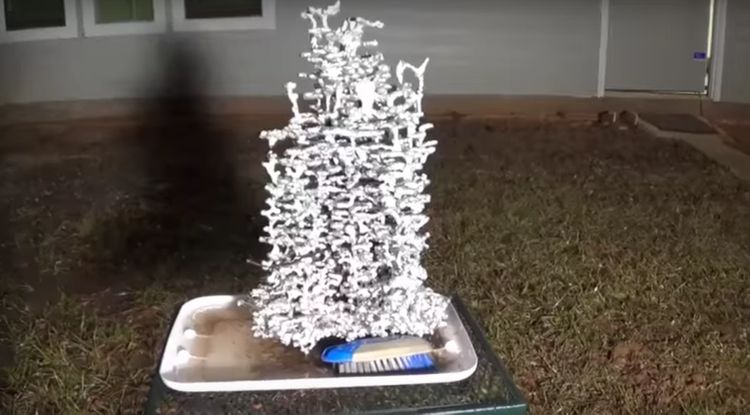
Complex System
Miraculous Process
The molten aluminum works its way through the colony and fills each chamber and tunnel. Once it all cools off, the artist has a replica of this ant hill. Plus, the casts are very accurate and are sometimes purchased for educational purposes.
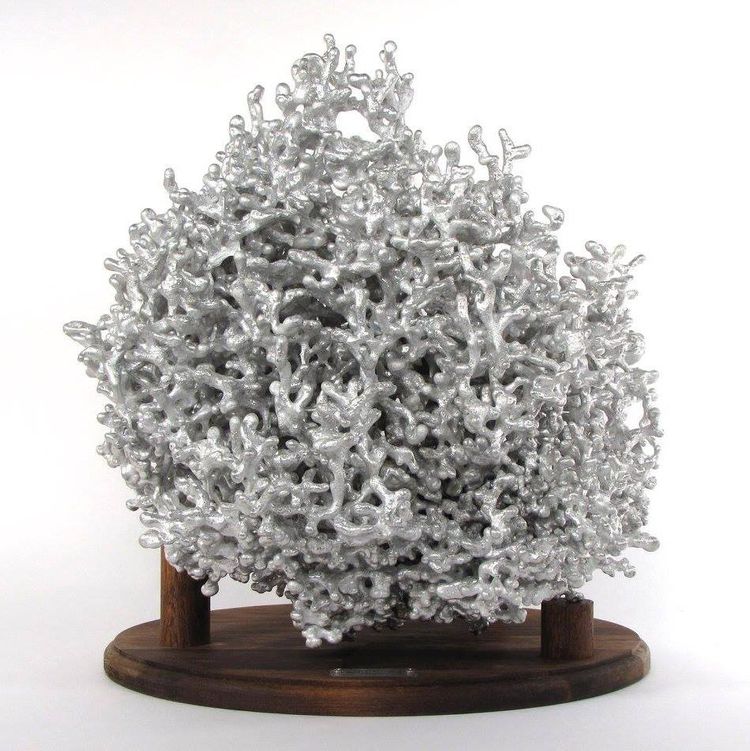
Miraculous Process
Large and in Charge
Most people believe ant hills are small, but that’s untrue! You only see the small piece of the structure above ground. In a sense, it’s like the foyer. The ant hill cast shown in the 2003 video was 18 pounds and about 18 inches tall!
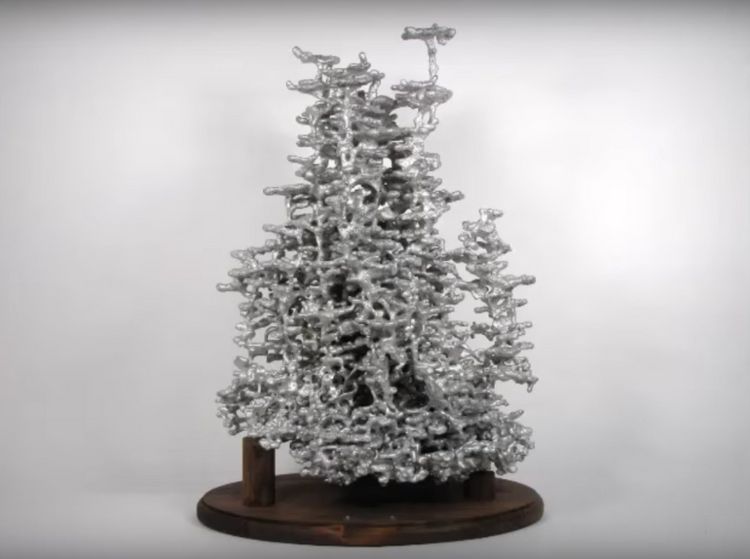
Large And In Charge
Breathtaking and Beautiful
The video’s ant hill blew everyone away when they saw it. In just a few short months, it had roughly 7 million views. Now, about 94 million people have watched the unique artist tackle his craft and make beautiful artwork.
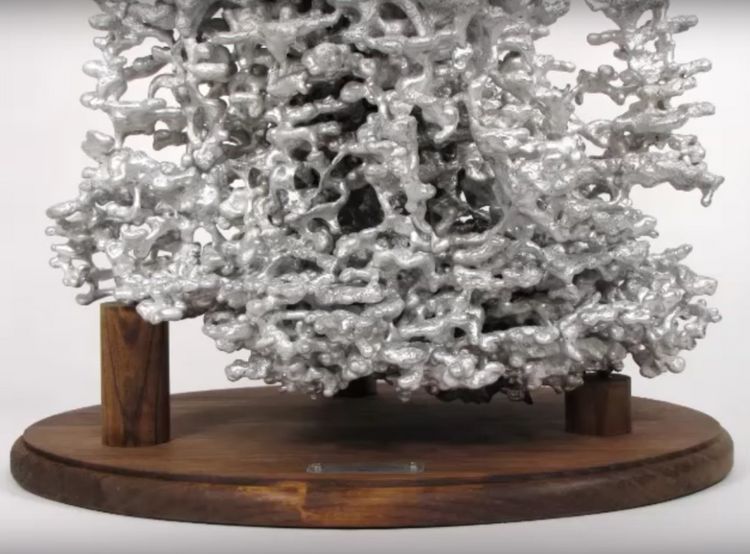
Breathtaking And Beautiful
The Love and Concern
It’s excellent to see what creation the man came up with by pouring molten metal into an ant hill. People fell in love with its beauty and insight into ants, but things quickly took a turn for the worse. What could have happened?

The Love And Concern
Controversy Begins
People enjoyed the artwork on display, but several criticized Ant Hill Art’s methods. They thought it was cruel to pour the molten aluminum into active ant nests because it killed them in an inhumane and horrific way.
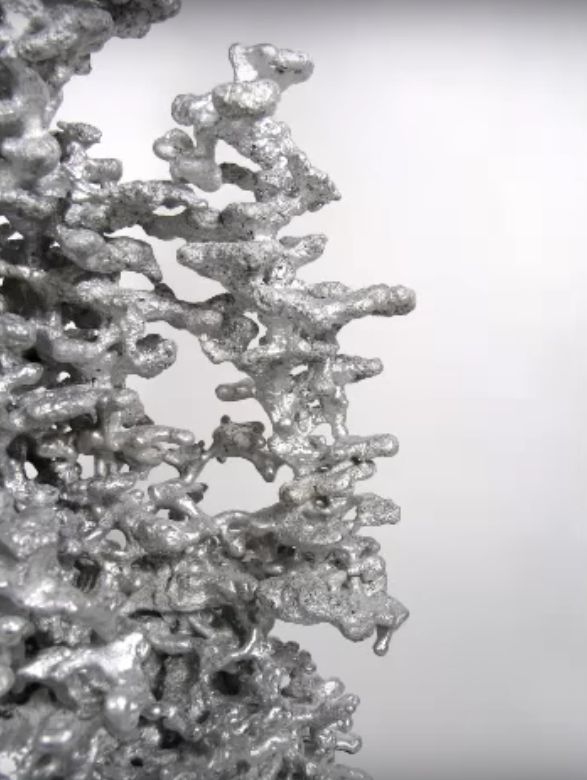
Controversy Begins
Distraught and Angry
One viewer was extremely upset and left a comment under the video. They said that the video and art made them feel sick to their stomach and angry. Murder should never be called artwork, and the man should not be construed as an artist!
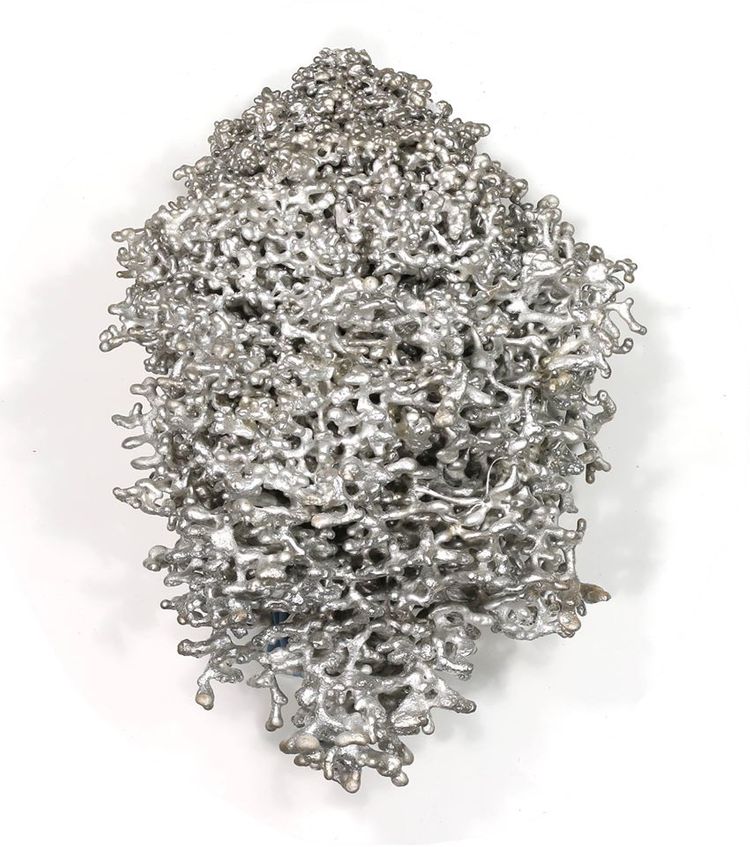
Distraught And Angry
Not Finished
One comment wasn’t enough from the disgruntled viewer, who continued with the tirade. They went on to say that the man thought so and had a childish need to kill insects, animals, and other living beings. It was a ploy to feel powerful, but they are innocent creatures.
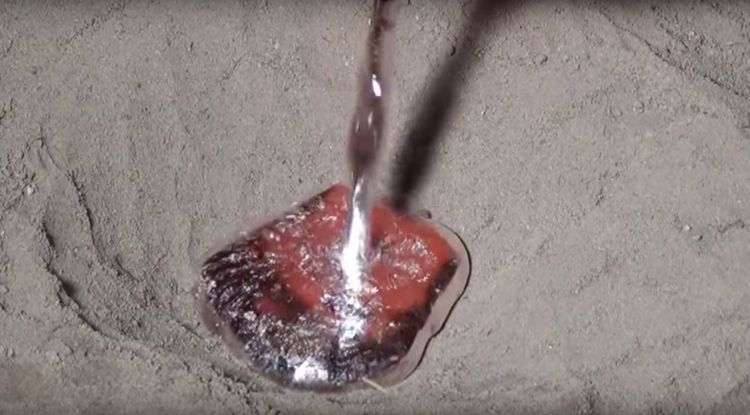
Not Finished
The Impassioned Response
Other viewers agreed with that sentiment and thought the artist was inhumane and cruel. Even though they were just ants, they were living creatures that got killed for art. Do you agree that the artist was snuffing out lives with his melted aluminum?!
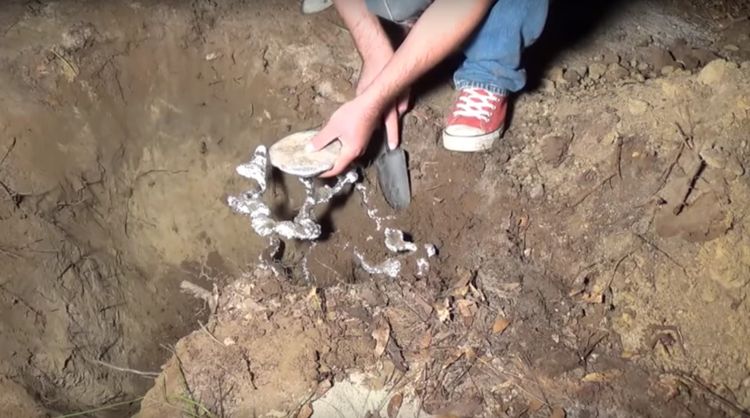
The Impassioned Response
Speaking Up
With all the criticism and comments building up, the artist realized that he had to speak up about the issue. What could he have possibly said to make people understand that he wasn’t trying to be mean to the creatures?

Speaking Up
Defending the Art
It turns out that the nest he used for the artwork was from a fire ant breed, which was pretty nasty. In fact, the bites could be painful and itchy. Therefore, the authorities were trying to eradicate the insects, so he felt he was just doing his part!
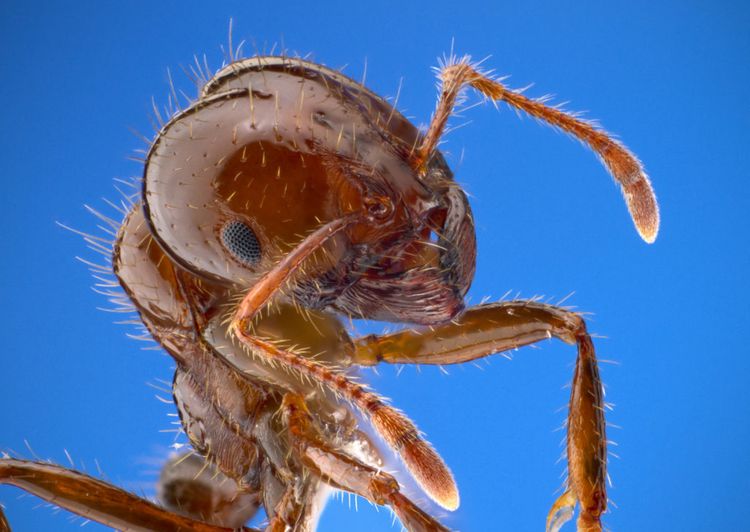
Defending The Art
Taking Responsibility
The artist wrote a few comments online about his video and artwork. He claimed that he always tried first to find abandoned nests, but that might not be possible. Regardless, he did it sparingly, and the fire ants had overrun his property.

Taking Responsibility
Insect Conservation Approval
Paul Hetherington supported the artist and is a spokesman for Buglife, an insect conservation organization. He claimed that he approved of the artwork if those nests were empty, though he agreed it was a cruel way to die if ants were still present.
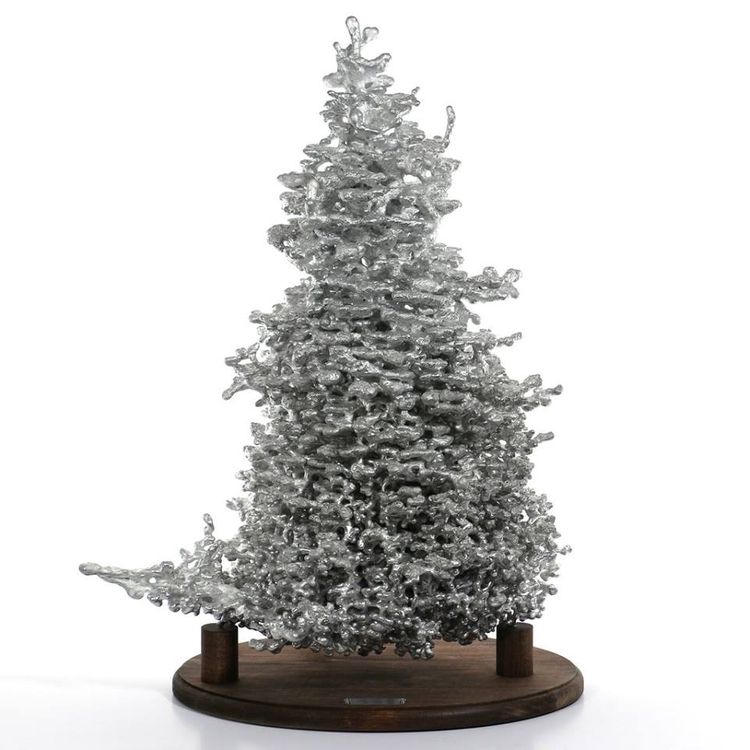
Insect Conservation Approval
No Signs of Stopping
Regardless of the vocal critics, Ant Hill Art didn’t show signs of stopping. He had 37,000 followers on Facebook, and people can’t deny that the art showcases the world’s beauty. Ants are quite amazing creatures!
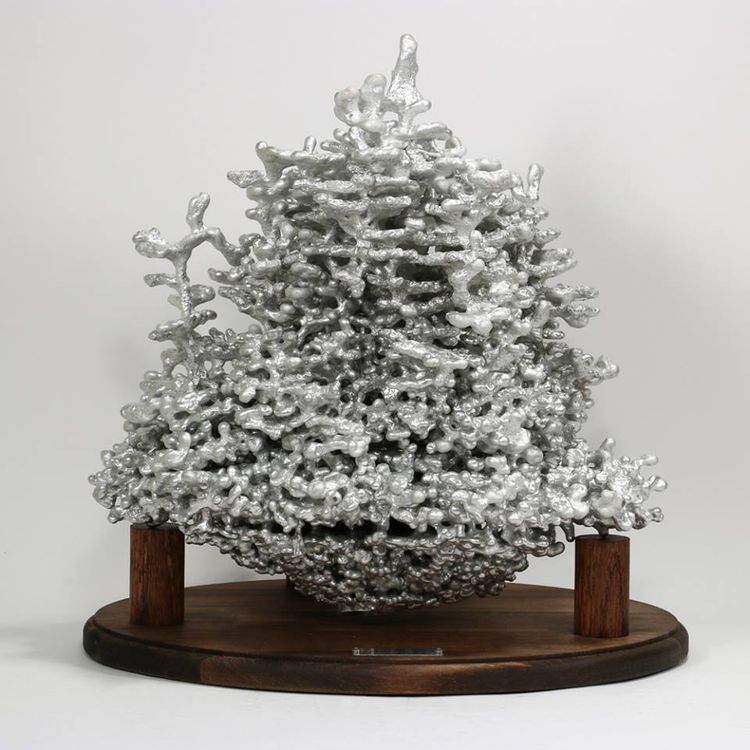
No Signs Of Stopping
Other Works
Overall, the negative comments on that one online video haven’t stopped other people from pouring molten metal into ant hills. In fact, some have created masterpieces that look to be out of this world. It’s amazing how art can happen, isn’t it?

Other Works
Tree, Moon, or Mushroom
This ant hill looks like something found on the moon, and it even resembles a tree. The flat and leaf-like structures could possibly be a mushroom, huh? Just note that the nest was abandoned before it turned into a creation.
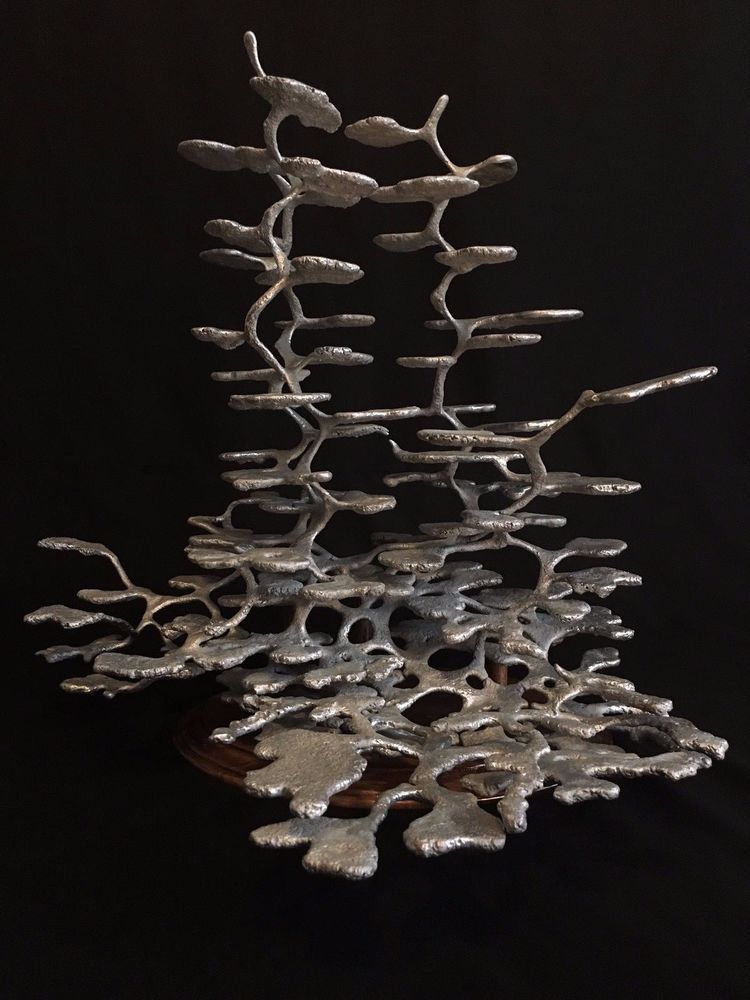
Tree, Moon, Or Mushroom
Take Home Art
This piece was found on Etsy, a vintage and handmade sales platform. In fact, these masterpieces keep getting more interesting as time goes on. It actually looks like a coral and captures the beauty of these small creatures.
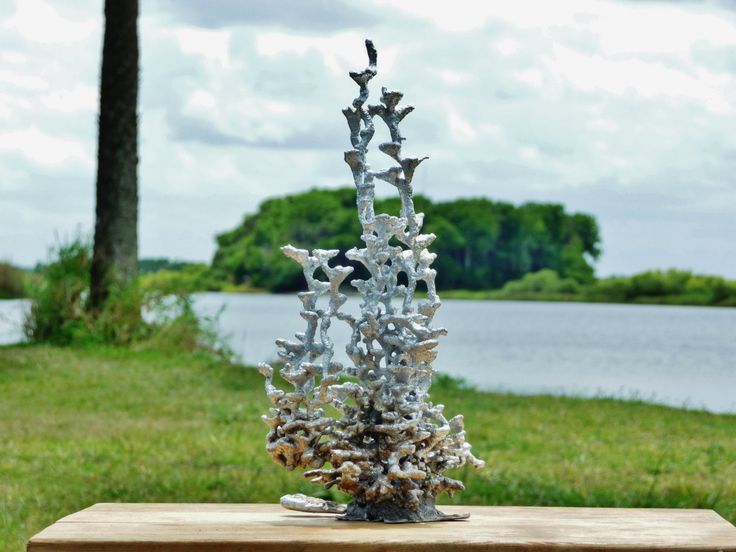
Take Home Art
Different Design and Species
Some structures appear to be very different based on the ant species that created it. Could the design be its signature? If you peer closely at this one, it seems like there’s a creature with legs that wants to run at you. Regardless, it’s awesome!
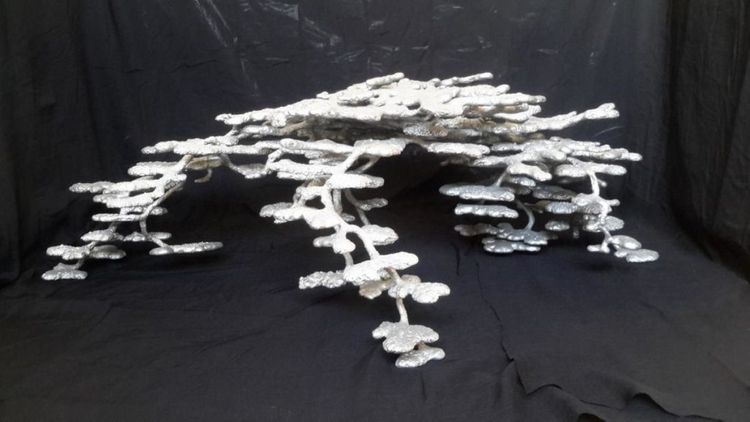
Different Design And Species
Loving Species
Some ants might sting you, but others are very loving creatures. You can see the nest below that looks like a heart. It’s perfectly shaped and is quite amazing. We wonder if some lucky woman received it as a Valentine’s Day present!
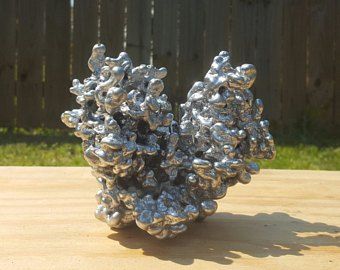
Loving Species
It’s Taken Off
It’s true that most people love this artwork and don’t care that much about the ants. Still, we’re glad that most artists try to ensure they’re vacated before pouring hot liquid metal on them and killing them. In fact, it’s become quite popular.
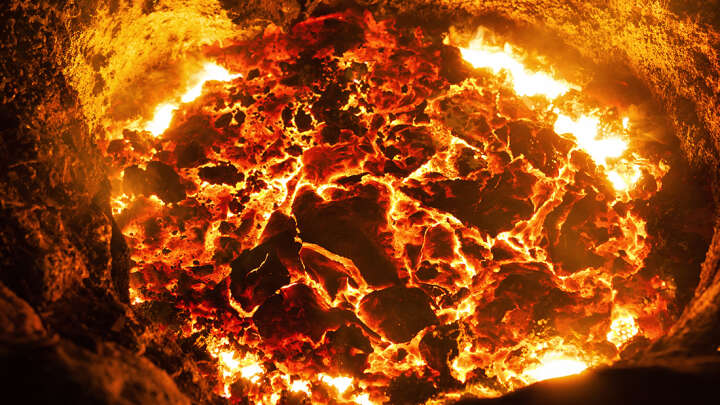
Molten,Steel,And,Metal,,Foundry
Acacia Tree
You can see this beautiful acacia tree preserved in metal. The detail is intricate, and you’re sure to wonder how it was done. Remember, these trees aren’t like ant hills. Overall, people are getting more creative with their molten metal artwork!
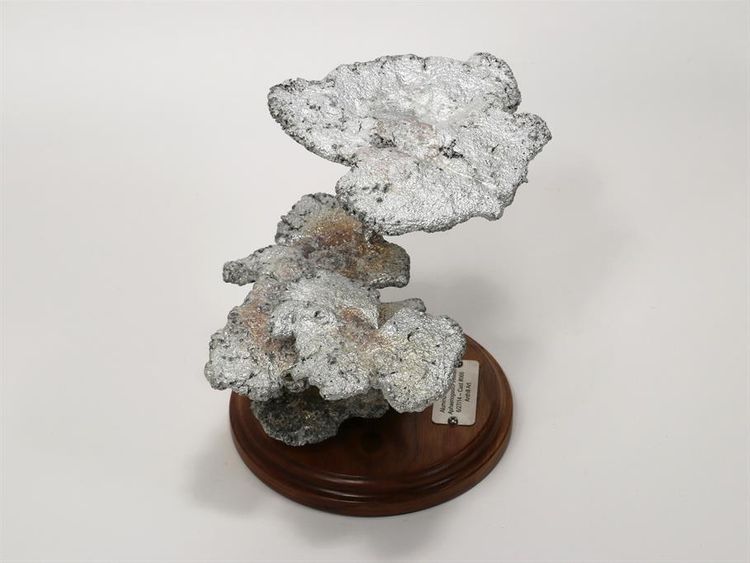
Acacia Tree
All Sizes
Clearly, ant farms come in various sizes and shapes. You can see the one below is clustered toward the bottom, slimming out at the top to offer a carrot-like appearance. The soda can gives you a visual representation of its height.
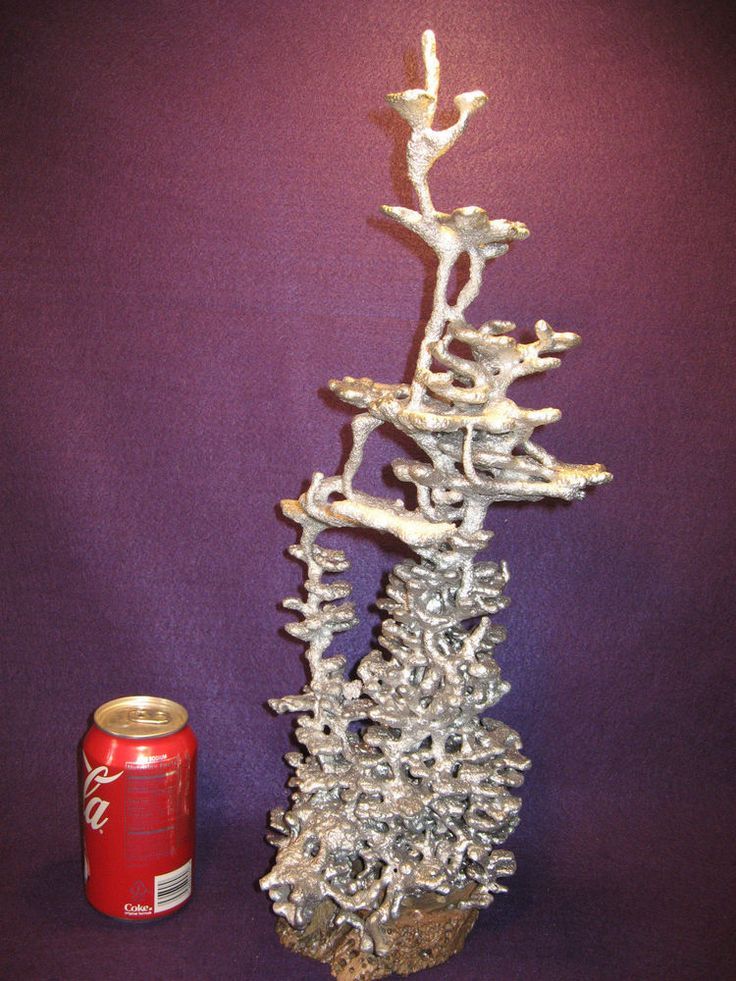
All Sizes
Small Scale
This picture shows something of a smaller scale, and it’s almost the perfect option for a jewelry hanger. Were the ants just tiny, or did they vacate before the hill could grow to its full size? We’re not sure, but it’s intricate nonetheless.
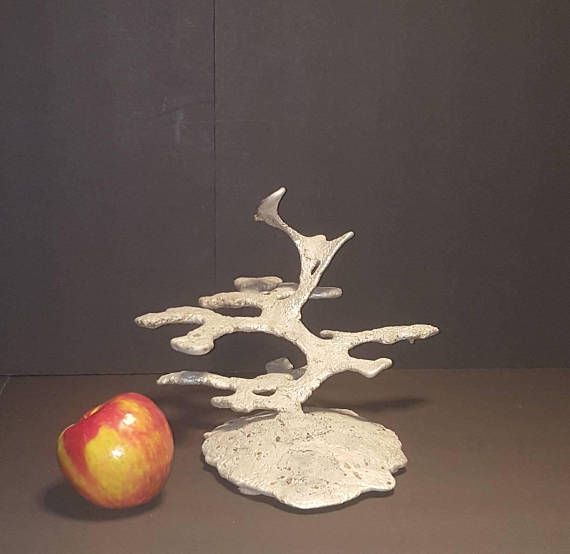
Small Scale
Tunnels
You can see that this shape features tunnel rows and is unlike other clusters shown so far. In fact, it was made by carpenter ants, and they nest in wood. That explains the shape.
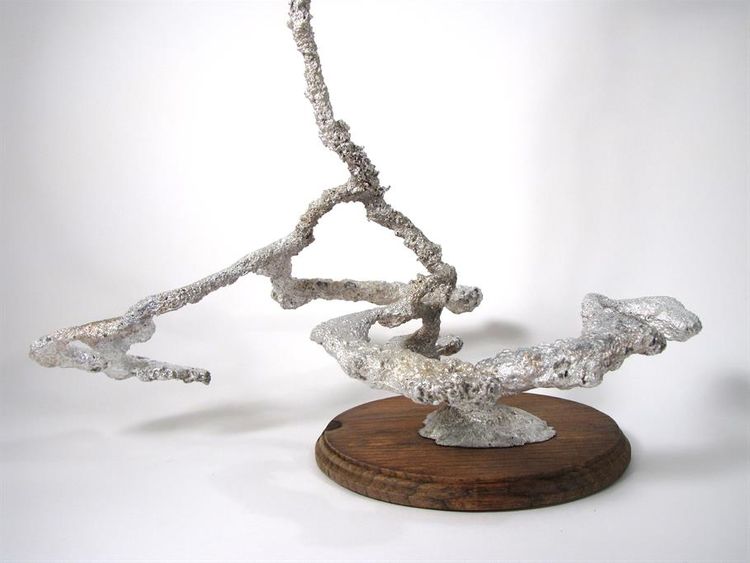
Tunnels
Carpenter Ants
Did you know that carpenter ants like damp wood? They usually make nests in damaged wood structures and logs. Therefore, it’s not uncommon to see them on homesteads and commercial areas. Next time you see an abandoned nest, you might try your hand at ant hill art yourself!
Imagine the Digging
Could you imagine having to dig up the treasure you just created? It seems strange to do that much work for one art creation. However, artists often spend days or months on one project, so it’s not abnormal.
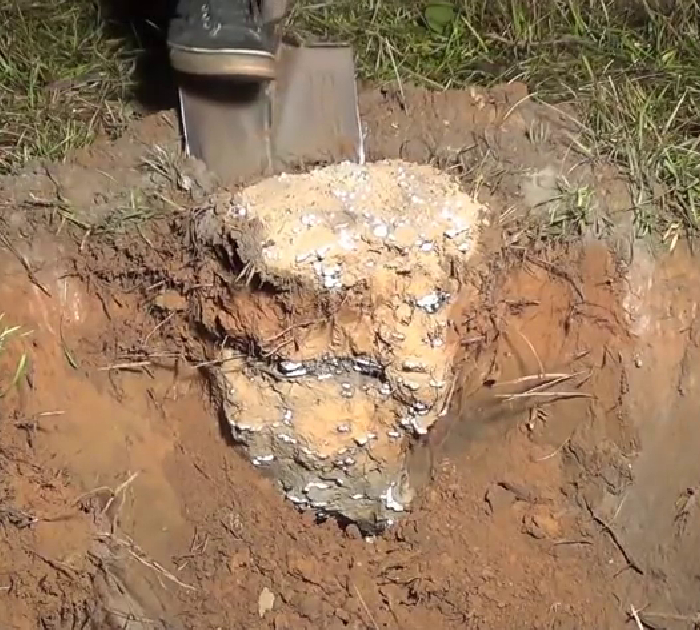
Imagine The Digging
Doesn’t Look Like Much
It’s crazy that an ant hill on the ground looks so unobtrusive. That small pile of dirt is hiding so much more beneath it. If it hadn’t been for the original artist, no one might have known how intricate these nests are!
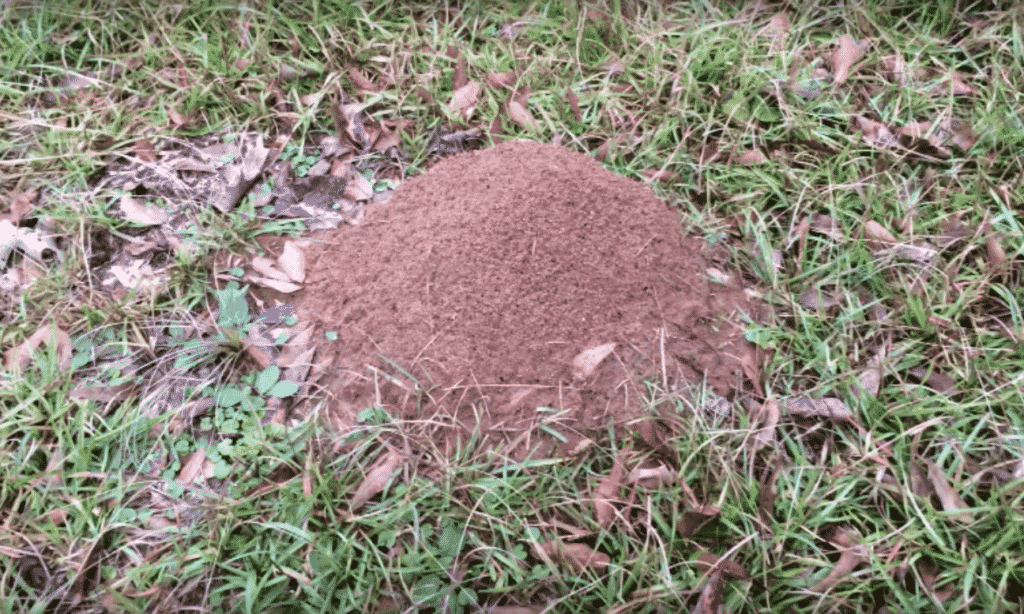
Doesn’t Look Like Much
The Arrow
This work of art looks just like an arrow pointing down. Did the ants do that intentionally? It could be a great way to direct others living within the nest. That might be far-fetched, but it’s still interesting to think about.
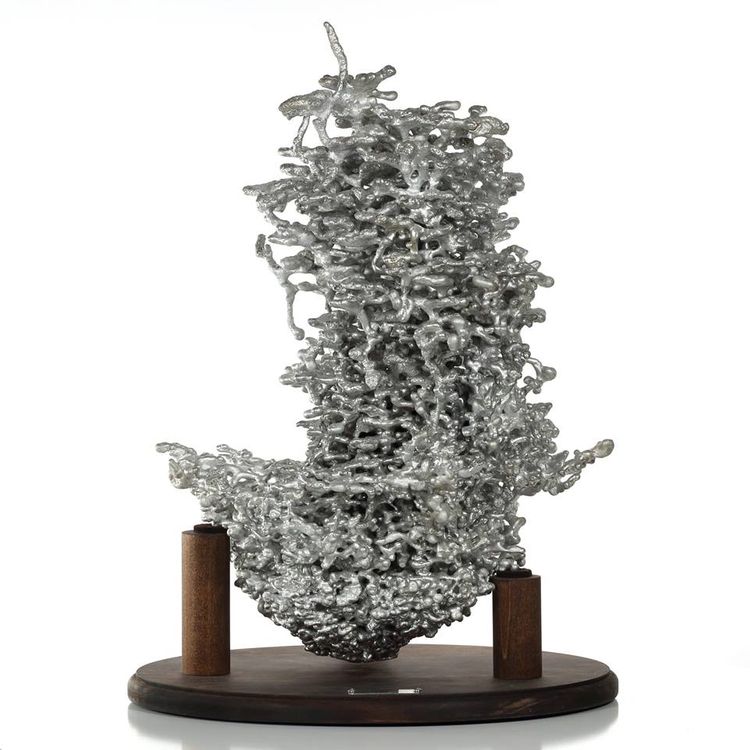
The Arrow
A Christmas Tree
This piece of art appears to be a Christmas tree, and it stands at 17 inches tall. Those fire ants sure worked hard on it. Overall, the nest was so large that the casting weighed in at over 20 pounds. It’s unthinkable and breathtaking to behold!
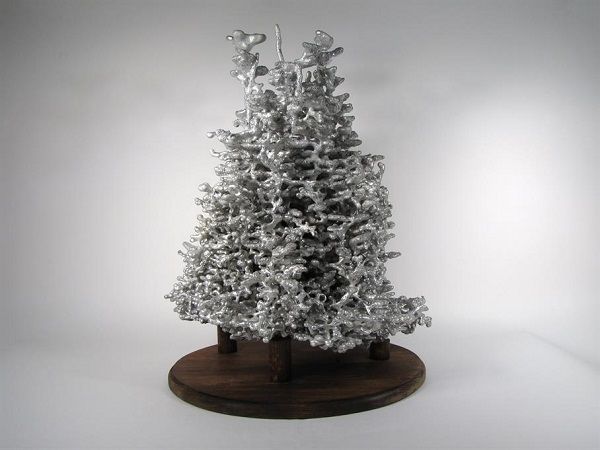
A Christmas Tree
The Man Behind the Art
No one knows the man’s name who created the ant hill artwork. However, there are pictures floating around online that show who he is. Maybe he lives next to you! Regardless, he knows what he’s doing and is helping the world understand ants a little more.
Your Thoughts
What do you think about it all? You probably marvel at the beauty these nests show, but it’s easy to be skeptical about how artists create them. Regardless, others have followed suit in the past, and it’s likely to continue!

Your Thoughts



